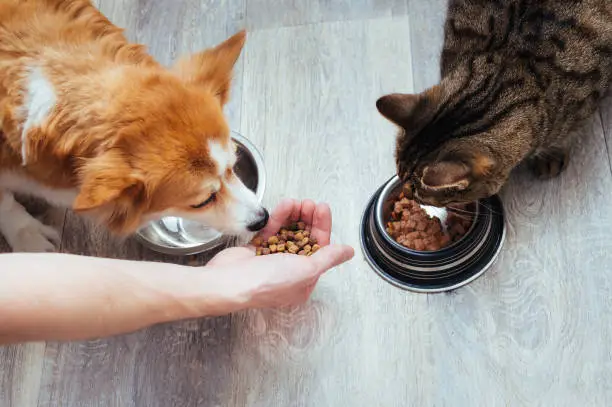Why Does My Cat Stare at Me? The Meaning Behind Your Cat’s Gaze

Cats are known for their enigmatic behavior, and one of the most intriguing is their tendency to stare intently at their human companions. If you’ve ever found yourself on the receiving end of a cat’s unblinking gaze, you might have wondered what’s going on behind those mysterious eyes. In this blog, we’ll explore the various reasons why cats stare at us and what their gaze might be trying to communicate.
1. A Sign of Affection
One of the most heartwarming reasons your cat might be staring at you is that it’s showing affection. Cats are known to use eye contact as a way of expressing their bond with their owners. If your cat gazes at you softly with relaxed eyes, it’s likely a sign that they feel comfortable and love you.
Why This Happens:
- Slow Blinking: When a cat looks at you and then slowly blinks, it’s often referred to as a “cat kiss.” This is a sign of trust and contentment. Cats only show their vulnerable side to those they trust, so a slow blink is a big compliment from your feline friend.
What You Can Do:
- Reciprocate the Gesture: You can return the affection by blinking slowly at your cat. This can strengthen your bond and reassure your cat of your love and trust.
2. Curiosity and Observation
Cats are naturally curious creatures, and their gaze can often be a sign of curiosity. When they stare at you, they might be trying to figure out what you’re up to or simply observing your actions.
Why This Happens:
- Attention to Detail: Cats have a keen sense of observation. If you’re doing something unusual or interesting, your cat might be focused on you to understand the situation better.
What You Can Do:
- Engage Them: If your cat seems particularly interested in what you’re doing, try engaging with them through play or interaction. This can satisfy their curiosity and provide mental stimulation.
3. Seeking Attention
If your cat stares at you, especially if paired with other behaviors like meowing or pawing at you, they might be trying to get your attention. This could be for various reasons such as hunger, wanting to play, or just seeking companionship.
Why This Happens:
- Direct Communication: Cats may not always vocalize their needs, but staring is one way they might use to communicate. It’s their way of saying, “Hey, I need something!”
What You Can Do:
- Check Their Needs: Ensure that their basic needs are met. If they seem to be asking for attention, spend some quality time with them or check if they need food, water, or a litter box change.
4. Feeling Anxious or Uncomfortable
A cat’s stare can sometimes indicate that they are feeling anxious or uncomfortable. If your cat is staring with dilated pupils and a tense body posture, they might be feeling stressed or unsure about their environment.
Why This Happens:
- Environmental Stress: Changes in the environment, such as new people, pets, or noises, can cause a cat to feel uneasy. Staring might be their way of trying to assess the situation or prepare for a potential threat.
What You Can Do:
- Create a Safe Space: Provide a safe and comfortable area for your cat where they can retreat if they feel threatened. Reducing stressors and maintaining a stable environment can help alleviate their anxiety.
5. Medical Issues
In some cases, persistent staring could be a sign of a medical issue. If your cat’s gaze seems unusual or is accompanied by other symptoms such as changes in behavior, eating habits, or physical health, it might be worth consulting a veterinarian.
Why This Happens:
- Health Concerns: Certain health conditions, such as vision problems or neurological issues, can cause changes in a cat’s gaze. If the staring is sudden or accompanied by other signs of distress, it’s important to seek professional advice.
What You Can Do:
- Monitor Their Health: Keep an eye on any changes in their behavior or physical health. If you notice anything unusual, schedule a visit to the vet to rule out any potential medical issues.
6. Instinctive Behavior
Cats are natural hunters, and their intense stare can be a part of their predatory instincts. Even if they are not hunting, this behavior can manifest in their daily lives as they observe their surroundings with intense focus.
Why This Happens:
- Prey Drive: The predatory instinct is deeply ingrained in cats, and their stare can sometimes reflect this natural drive. They might be observing you or their environment with the same intensity they would use when hunting.
What You Can Do:
- Provide Enrichment: To channel their natural instincts, provide toys and activities that mimic hunting behaviors. Interactive play sessions can help satisfy their predatory drive in a healthy way.
Conclusion
Understanding why your cat stares at you can provide valuable insights into their emotions and needs. Whether they are expressing affection, seeking attention, or simply observing their environment, each gaze has its own meaning. By paying attention to the context and accompanying behaviors, you can better respond to your cat’s needs and strengthen your bond.




